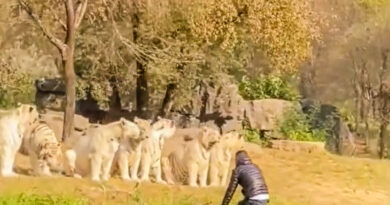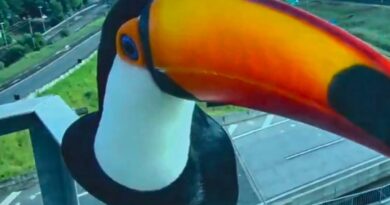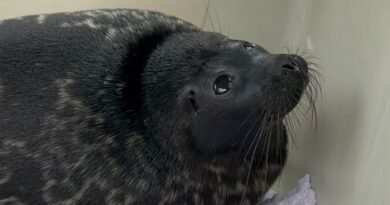First Macaws in 150 Years Born in Wild in Argentina Take Flight
Under the watchful eye of their parents these rare young macaws that are the first to be born in the wild in Argentina 150 years after they became extinct locally are now learning how to fly.
Regenerating macaw populations is one of many projects of the Rewilding Argentina Foundation which has operated since 2010 with a mission to reintroduce threatened species and the arrival of Tuco and Pure who are now learning to fly is the result of six years of hard work.
The new arrivals to the population of what is now 20 birds are the first wild-born red-and-green macaw fledglings for 150 years in this part of Argentina.
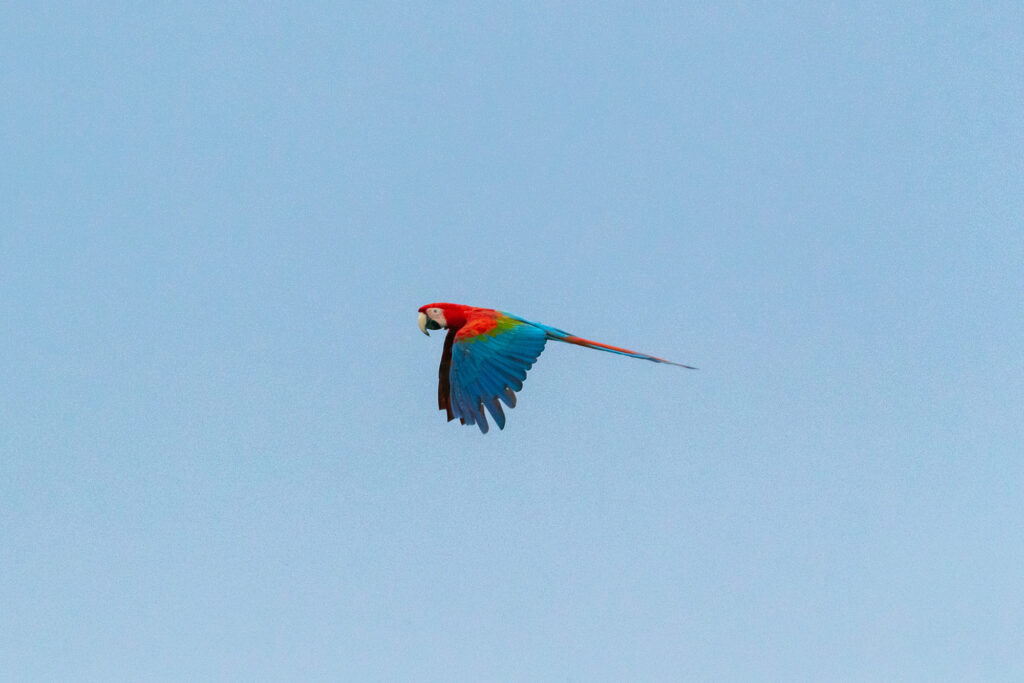
The mission to rewild these macaws started in 2015 and has only now been rewarded with the birth of this pair in October 2020 at a natural park in the Iberia Wetlands of Corrientes, in north east Argentina.
The red-and-green macaws (Ara chloropterus) of South America have been considered extinct in this area for 150 years and rewilders have suffered many disappointments in the lead-up to Tuco and Pure’s birth.
But now that the pair have started leaving their nesting box for short 500-600 metre learning flights under the guidance of their father, the team at the foundation are celebrating while recording how the birds learn to land and move around the trees and branches.
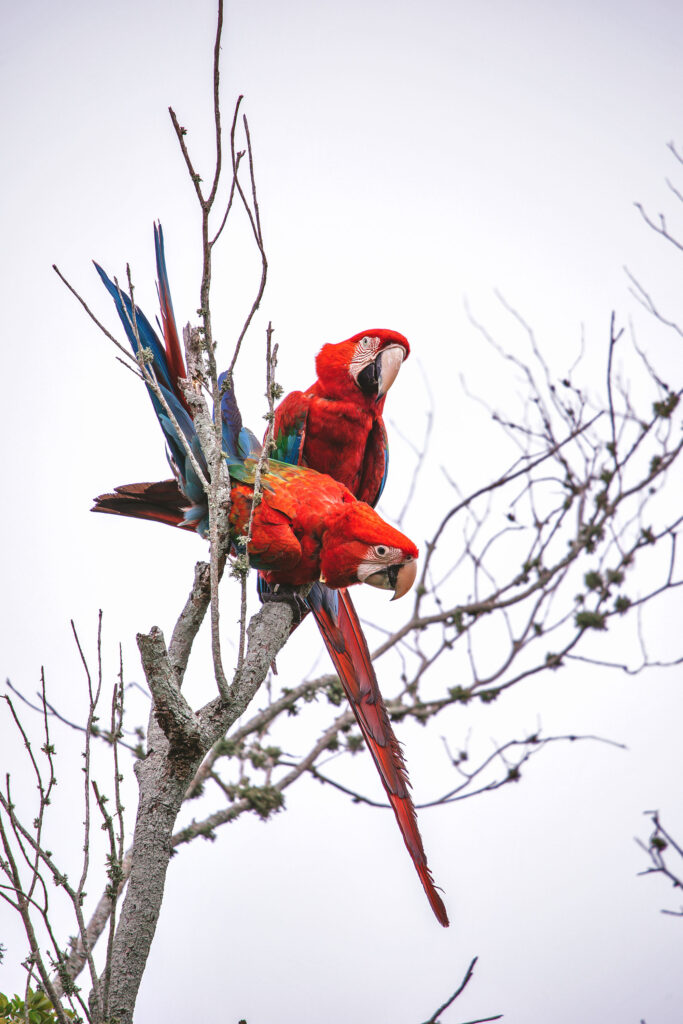
There are currently 19 of this species being helped by two different groups across the natural park Talia Zamboni, a biologist from Rewilding Argentina told Real Press.
Tuco and Pure are the daughters of a captive-born breeding pair that were released years ago, and the two have had previous failures since first trying in 2019 said Zamboni.
“They were first-time parents in 2019,” she said. “But they did not have experience and sometimes those animals break their eggs and the babies are not born.”
But this new success has “filled us with joy” said Zamboni. She and other team members have been helping the birds feed their offspring and learn how to be good parents.
“When they are very small, they are very delicate in terms of food ingestion and they have to eat permanently to survive,” explained Zamboni. “If they are fed less, they could be at risk of dying. That is why the workers helped the parents, although the idea is that they learn the process so that in the future they can do it by themselves.”
Marianela Masat, who is responsible for the red-and-green macaw project at Rewilding Argentina said that the two hatchlings were born in nest box built by foundation workers in the natural reserve. This helped their parents protect them and raise them.
They started to venture outside the artificial nest after growing their first downy feathers and in late January the fledglings started to fly under the watchful eye of their father.
It is expected that the parents will keep feeding them for several weeks until they can fly proficiently by themselves.
The last known sighting of this species in the wild was in 1850 said Zamboni. “They disappeared because a lot of them were hunted to be used as pets,” she said. “But they were also victims of feather trafficking.”
Deforestation of their natural habitat is another reason for their disappearance she added.
Tuco and Pure join 17 other macaws released after being taught to fly in a tunnel by the foundation’s experts. The birds were mainly taken from zoos and breeding programmes.
An earlier release in 2015 failed as the animals had not been flight trained, but the team have learned from early mistakes and new animals now undergo a process before release that includes training to adapt to the new environment as well as flight school.
According to Zamboni, the plan is to keep on releasing this species in the area but she believes that with a total of 20 now, it may be enough to build a healthy population. Despite this positive outlook the animals are carefully monitored through special collars to ensure they are adapting well to the new habitat.
She added that the macaws play an important role in the local ecosystem by spreading seeds from big fruit which helps regenerate the forest. They are a favourite of nature lovers and bird spotters due to their colourful plumage. “And,” she adds. “They also help local communities through tourism.”

